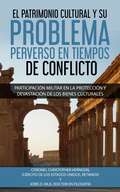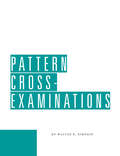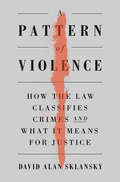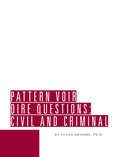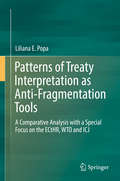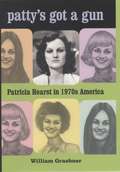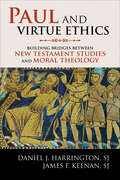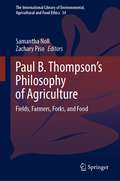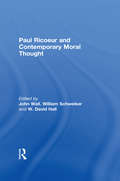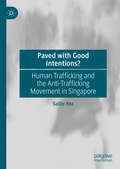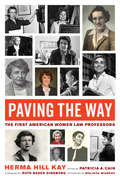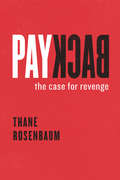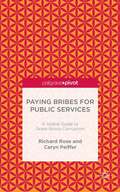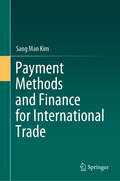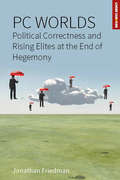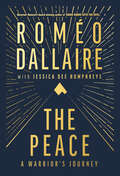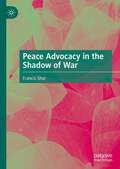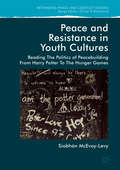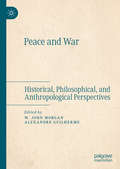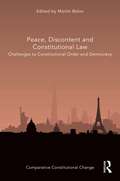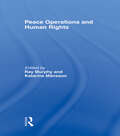- Table View
- List View
El Patrimonio Cultural y su Problema Perverso en Tiempos de Conflicto: Participación militar en la protección y devastación de bienes culturales
by Christopher V. HerndonLa herencia cultural del mundo se encuentra en la actualidad amenazada no solamente por el transcurrir del tiempo, las inclemencias de la naturaleza y el desarrollo humano, sino también cada vez más por los conflictos armados. Presenciamos la destrucción causada no solamente por los saqueos y el tráfico ilícito, sino por la iconoclasia y por la manipulación de la herencia cultural por motivos religiosos, económicos y propagandísticos. Las ganancias provenientes de la venta ilegal son a menudo utilizadas para financiar los conflictos tal como se ilustra en el modelo de negocios de Da’esh que se utiliza como ejemplo en esta publicación. La Protección de la Propiedad Cultural (PPC), aunque es de obligatorio cumplimiento bajo los estamentos legales nacionales e internacionales, es implementada muy pobremente y las sanciones por su incumplimiento son muy rara vez aplicadas. Sin embargo, existe una constante demanda no solo local sino internacional para aumentar los niveles educativos e incrementar la investigación multidisciplinaria sobre el tópico, en particular en el contexto del conflicto y el crimen organizado. La investigación académica debe incluir las perspectivas militares, y también los mecanismos que conectan tanto al abuso como a su protección. Los resultados deberían contener una conceptualización académica, así como soluciones fundamentadas en la práctica de manera de disminuir y mitigar los daños. Los autores escribieron esta publicación para satisfacer la demanda de información actualizada sobre este tema y al mismo tiempo para intensificar y dar seguimiento a su trabajo previo: Involucración Militar en la Protección de la Propiedad Cultural: Una Reseña. (Trabajo publicado en la Joint Force Quarterly, JFQ 74, 3rd Quarter 2014 July 2014). Este nuevo trabajo incluye una selección de estudios de caso utilizados como ejemplo e incorpora desarrollos y tendencias recientes. Todos estos ingredientes sirven para alimentar la i
Pattern Cross-Examinations
by Walter SimpsonSucceed at cross-examination with these proven strategies, angles of attack and sample questions. Loaded with tips and techniques culled from Walter Simpson's 40+ years of in-the-trenches experience, Pattern Cross-Examinations will help you tackle these tough challenges of cross-examination with ease and finesse: * Dealing with the sarcastic or non-responsive witness * Handling the confrontational witness * Rattling the expert witness * When to ask an open-ended question * When to push a witness and when to back off Model cross-examinations (plaintiff and defense) in common fact patterns are provided for each of these areas of civil litigation: * Auto accidents * Breach of contract * Civil assault and battery * Civil rights * Employment discrimination * Insurance policy litigation * Malicious prosecution * Medical malpractice * Premises liability * Products liability
A Pattern of Violence: How the Law Classifies Crimes and What It Means for Justice
by David Alan SklanskyA law professor and former prosecutor reveals how inconsistent ideas about violence, enshrined in law, are at the root of the problems that plague our entire criminal justice system—from mass incarceration to police brutality. We take for granted that some crimes are violent and others aren’t. But how do we decide what counts as a violent act? David Alan Sklansky argues that legal notions about violence—its definition, causes, and moral significance—are functions of political choices, not eternal truths. And these choices are central to failures of our criminal justice system. The common distinction between violent and nonviolent acts, for example, played virtually no role in criminal law before the latter half of the twentieth century. Yet to this day, with more crimes than ever called “violent,” this distinction determines how we judge the seriousness of an offense, as well as the perpetrator’s debt and danger to society. Similarly, criminal law today treats violence as a pathology of individual character. But in other areas of law, including the procedural law that covers police conduct, the situational context of violence carries more weight. The result of these inconsistencies, and of society’s unique fear of violence since the 1960s, has been an application of law that reinforces inequities of race and class, undermining law’s legitimacy. A Pattern of Violence shows that novel legal philosophies of violence have motivated mass incarceration, blunted efforts to hold police accountable, constrained responses to sexual assault and domestic abuse, pushed juvenile offenders into adult prisons, encouraged toleration of prison violence, and limited responses to mass shootings. Reforming legal notions of violence is therefore an essential step toward justice.
Pattern Voir Dire Questions
by Susan BroomeYou've been hard at work on your client's behalf for months. Don't leave his fate in the hands of an unfairly biased juror. Pattern Voir Dire Questions covers 26 different types of cases and more than 150 distinct topics, including: * Assault & battery * Breach of contract * Civil rights violations (§1983) * Domestic violence * Employment discrimination * Fraud * Homicide * Medical malpractice * Pain and suffering This helpful book puts more than 1,700 jury voir dire questions at your fingertips. Built from author Susan Broome's 20+ years of experience as a professional trial consultant, Pattern Voir Dire Questions covers a broad range of civil and criminal cases, including written Supplemental Juror Questionnaires that you can use. A Topical Index of Questions gives you an alternative way to find just the right questions for your case and make sure you have covered all the bases.
Patterns of Treaty Interpretation as Anti-Fragmentation Tools: A Comparative Analysis With A Special Focus On The Ecthr, Wto And Icj
by Liliana E. PopaThis book investigates whether treaty interpretation at the ECtHR and WTO, which are sometimes perceived as promoting 'self-contained' regimes, could constitute a means for unifying international law, or, conversely, might exacerbate the fragmentation of international law. In this regard, the practice of the ICJ on treaty interpretation is used for comparison, since the ICJ has made the greatest contribution to the development and clarification of international law rules and principles. Providing a critical analysis of cases at the ICJ, ECtHR and WTO, both prior to and since the adoption of the 1969 Vienna Convention on the Law of Treaties, the book reveals how the ECtHR and WTO apply the general rules of treaty interpretation in patterns which are similar to those used by the ICJ to address difficulties in interpreting the text of treaties. Viewed in the light of the ECtHR's and WTO's interpretative practices, both the VCLT's general rules of interpretation and the ICJ's interpretative practice serve to counteract the fragmentation of international law.
Patty's Got a Gun: Patricia Hearst in 1970s America
by William GraebnerPatty Hearst's life changed abruptly at 9 p.m., February 4, 1974, when her fiancé , philosophy graduate student Steven Weed, opened the front door of their Berkeley, California, apartment. Two armed men and a woman, members of the Symbionese Liberation Army, pushed their way in. "Bitch," one of them said to Patty, "better be quiet, or we'll blow your head off." In less than three minutes, Patty, wearing only a blue bathrobe, had been gagged, blindfolded, and, her hands bound, dragged through the living room, struck in the face with a rifle butt, and forced into the trunk of a car. She had been kidnapped.
Paul and Virtue Ethics: Building Bridges Between New Testament Studies and Moral Theology
by Daniel J Harrington S.J. James Keenan SJDaniel Harrington, SJ, and James Keenan, SJ, approach moral theology through virtue ethics, asking the key questions, Who am I? Who do I want to become? And how do I get there? With the apostle Paul as a guide, the authors examine the virtues that flow from Scripture and provide a lens through which to interpret Scripture. They explore theological virtues faith, hope, and love; natural virtues and vices; social ethics, and sexual ethics.
Paul B. Thompson's Philosophy of Agriculture: Fields, Farmers, Forks, and Food (The International Library of Environmental, Agricultural and Food Ethics #34)
by Samantha Noll Zachary PisoThis book explores the philosophical thought and praxis of Paul B. Thompson, who planted some of the first seeds of philosophy of agriculture and whose work inspires interdisciplinary scholarship in food ethics, biotechnology, and environmental philosophy. Landmark texts such as The Spirit of the Soil, The Agrarian Vision, and From Field to Fork revealed the fertility of food systems for inspiring reflection on our relationships to technology, the land, and one another. Rooted in philosophical traditions ranging from pragmatism to post-phenomenology, Thompson’s work nourishes projects in ethics, epistemology, philosophy of science, and social and political theory, not only in academic philosophy departments but also in the social and natural sciences. This volume collects this diversity of thought in a tour of the many fields of food systems; from theorizing the sustainability of agroecological systems, to appreciating the quotidian practice of agrarian communities, to anticipating the impacts of emerging biotechnology, and to savoring the roles that food plays in forming our identities. Composed by an international crop of scholars working on the future of food ethics, the volume is a vital contribution to scholars and practitioners thinking through our relationships to the food systems that sustain us.
Paul Ricoeur and Contemporary Moral Thought
by John Wall; William Schweiker; W. David HallThis book explores and proposes new avenues for contemporary moral thought. It defines and assesses the significance of the writings of French philosopher Paul Ricoeur for ethics. The book also explores what matters most to persons and how best to sustain just communities.
Paul's Political Strategy in 1 Corinthians 1–4 Constitution and Covenant (Society for New Testament Studies Monograph Series)
by Bradley J. BitnerThis volume examines 1 Corinthians 1–4 within first-century politics, demonstrating the significance of Corinth's constitution to the interpretation of Paul's letter. Bradley J. Bitner shows that Paul carefully considered the Roman colonial context of Corinth, which underlay numerous ecclesial conflicts. Roman politics, however, cannot account for the entire shape of Paul's response. Bridging the Hellenism-Judaism divide that has characterized much of Pauline scholarship, Bitner argues that Paul also appropriated Jewish-biblical notions of covenant. Epigraphical and papyrological evidence indicates that his chosen content and manner are best understood with reference to an ecclesial politeia informed by a distinctively Christ-centered political theology. This emerges as a “politics of thanksgiving” in 1 Corinthians 1:4–9 and as a “politics of construction” in 3:5–4:5, where Paul redirects gratitude and glory to God in Christ. This innovative account of Paul's political theology offers fresh insight into his pastoral strategy among nascent Gentile-Jewish assemblies. Is the first study to demonstrate the methodological viability and relevance of Corinth's constitution to the interpretation of 1 Corinthians. Analyses new documentary evidence Incorporates original methodological work and detailed exegesis.
Paved with Good Intentions?: Human Trafficking and the Anti-trafficking Movement in Singapore
by Sallie YeaThis book focuses on human trafficking and the anti-trafficking movement, particularly as it is expressed in Southeast Asia. The study is based on ethnographic research of the emerging anti-trafficking movement in Singapore, and in-depth interviews and observations with victims of human trafficking and others subject to labour exploitation in Singapore. Research in the book adds to the significant amount of work documenting human trafficking in Asia, by offering a critical academic perspective on the rise of the anti-trafficking movement. Readers will gain an understanding of how anti-trafficking operates as a new social movement and state practice, and how anti-trafficking often sits at odds with the experiences of trafficked and exploited persons themselves.
Paving the Way: The First American Women Law Professors (Law in the Public Square #1)
by Herma Hill KayThe first wave of trailblazing female law professors and the stage they set for American democracy. When it comes to breaking down barriers for women in the workplace, Ruth Bader Ginsburg’s name speaks volumes for itself—but, as she clarifies in the foreword to this long-awaited book, there are too many trailblazing names we do not know. Herma Hill Kay, former Dean of UC Berkeley School of Law and Ginsburg’s closest professional colleague, wrote Paving the Way to tell the stories of the first fourteen female law professors at ABA- and AALS-accredited law schools in the United States. Kay, who became the fifteenth such professor, labored over the stories of these women in order to provide an essential history of their path for the more than 2,000 women working as law professors today and all of their feminist colleagues. Because Herma Hill Kay, who died in 2017, was able to obtain so much first-hand information about the fourteen women who preceded her, Paving the Way is filled with details, quiet and loud, of each of their lives and careers from their own perspectives. Kay wraps each story in rich historical context, lest we forget the extraordinarily difficult times in which these women lived. Paving the Way is not just a collection of individual stories of remarkable women but also a well-crafted interweaving of law and society during a historical period when women’s voices were often not heard and sometimes actively muted. The final chapter connects these first fourteen women to the "second wave" of women law professors who achieved tenure-track appointments in the 1960s and 1970s, carrying on the torch and analogous challenges. This is a decidedly feminist project, one that Justice Ruth Bader Ginsburg advocated for tirelessly and admired publicly in the years before her death.
Payback: The Case for Revenge
by Thane RosenbaumWe call it justice--the assassination of Osama bin Laden, the incarceration of corrupt politicians or financiers like Rod Blagojevich and Bernard Madoff, and the climactic slaying of cinema-screen villains by superheroes. But could we not also call it revenge? We are told that revenge is uncivilized and immoral, an impulse that individuals and societies should actively repress and replace with the order and codes of courtroom justice. What, if anything, distinguishes punishment at the hands of the government from a victim's individual desire for retribution? Are vengeance and justice really so very different? No, answers legal scholar and novelist Thane Rosenbaum in Payback: The Case for Revenge--revenge is, in fact, indistinguishable from justice. Revenge, Rosenbaum argues, is not the problem. It is, in fact, a perfectly healthy emotion. Instead, the problem is the inadequacy of lawful outlets through which to express it. He mounts a case for legal systems to punish the guilty commensurate with their crimes as part of a societal moral duty to satisfy the needs of victims to feel avenged. Indeed, the legal system would better serve the public if it gave victims the sense that vengeance was being done on their behalf. Drawing on a wide range of support, from recent studies in behavioral psychology and neuroeconomics, to stories of vengeance and justice denied, to revenge practices from around the world, to the way in which revenge tales have permeated popular culture--including Hamlet, The Godfather, and Braveheart--Rosenbaum demonstrates that vengeance needs to be more openly and honestly discussed and lawfully practiced. Fiercely argued and highly engaging, Payback is a provocative and eye-opening cultural tour of revenge and its rewards--from Shakespeare to TheSopranos. It liberates revenge from its social stigma and proves that vengeance is indeed ours, a perfectly human and acceptable response to moral injury. Rosenbaum deftly persuades us to reconsider a misunderstood subject and, along the way, reinvigorates the debate on the shape of justice in the modern world.
Payback: The Case for Revenge
by Thane RosenbaumWe call it justice—the assassination of Osama bin Laden, the incarceration of corrupt politicians or financiers like Rod Blagojevich and Bernard Madoff, and the climactic slaying of cinema-screen villains by superheroes. But could we not also call it revenge? We are told that revenge is uncivilized and immoral, an impulse that individuals and societies should actively repress and replace with the order and codes of courtroom justice. What, if anything, distinguishes punishment at the hands of the government from a victim’s individual desire for retribution? Are vengeance and justice really so very different? No, answers legal scholar and novelist Thane Rosenbaum in Payback: The Case for Revenge—revenge is, in fact, indistinguishable from justice. Revenge, Rosenbaum argues, is not the problem. It is, in fact, a perfectly healthy emotion. Instead, the problem is the inadequacy of lawful outlets through which to express it. He mounts a case for legal systems to punish the guilty commensurate with their crimes as part of a societal moral duty to satisfy the needs of victims to feel avenged. Indeed, the legal system would better serve the public if it gave victims the sense that vengeance was being done on their behalf. Drawing on a wide range of support, from recent studies in behavioral psychology and neuroeconomics, to stories of vengeance and justice denied, to revenge practices from around the world, to the way in which revenge tales have permeated popular culture—including Hamlet, The Godfather, and Braveheart—Rosenbaum demonstrates that vengeance needs to be more openly and honestly discussed and lawfully practiced. Fiercely argued and highly engaging, Payback is a provocative and eye-opening cultural tour of revenge and its rewards—from Shakespeare to The Sopranos. It liberates revenge from its social stigma and proves that vengeance is indeed ours, a perfectly human and acceptable response to moral injury. Rosenbaum deftly persuades us to reconsider a misunderstood subject and, along the way, reinvigorates the debate on the shape of justice in the modern world.
Paying Bribes for Public Services: A Global Guide to Grass-Roots Corruption
by Richard Rose Caryn PeifferThis book documents what happens when people encounter public officials. It draws on multi-national Barometer surveys asking questions about corruption and bribery in 119 countries. Clear prose, tables and figures report the answers given by more than 250,000 people and the conclusion sets out six principles for reducing bribery.
Payment Methods and Finance for International Trade
by Sang Man KimThis book explains various methods of payment in international trade and trade finance schemes for international trade. It also presents an overview of the concepts, purposes, features, and risks of international trade.A grasp of the features and risks of international trade facilitates a better understanding of the numerous methods of payment in international trade and the relevant trade finance schemes, which is essential to success in international trade transactions.In order to complete an international trade transaction, depending on the terms, both parties need access to funds. Compared with large companies, small and medium-sized enterprises (SMEs), frequently face difficulties in raising capital or funds, but financing an international trade transaction is often the key to its successful completion. As such, selecting an appropriate financing mechanism from the various options available is vital.This book offers a systematic overview of international trade and payment together with trade finance, providing instructive examples and illustrations of trade documents, each method of payment, and trade finance including export credit insurance or guarantee.
PC Worlds: Political Correctness and Rising Elites at the End of Hegemony (Loose Can(n)ons #2)
by Jonathan FriedmanThis provocative work offers an anthropological analysis of the phenomenon of political correctness, both as a general phenomenon of communication, in which associations in space and time take precedence over the content of what is communicated, and at specific critical historical conjunctures at which new elites attempt to redefine social reality. Focusing on the crises over the last thirty years of immigration and multiculturalist politics in Sweden, the book examines cases, some in which the author was himself involved, but also comparative material from other countries.
The Peace: A Warrior's Journey
by Romeo DallaireInternational humanitarian icon and bestselling author General Roméo Dallaire guides readers on a crucial and inspiring journey from past wars through post-modern conflict toward a vision of lasting peace.In The Peace, Roméo Dallaire shows us the past, present and future of war through the prism of his own life. Trained in classic warfare during the Cold War era of mutual deterrence, Dallaire in good faith commanded the UN&’s peacekeeping mission for Rwanda in 1994, only to see the country abandoned and descend into the hell of genocide. The battered, tortured warrior who emerged from that catastrophe grew determined to help repair the new world disorder—to prevent genocide, abolish the use of child soldiers, and find ways to intervene in, even prevent, conflicts in defence of humanity. And so Dallaire helped advance the doctrines of Responsibility to Protect and the Will to Intervene only to witness those initiatives falter because of the same old power politics, national self-interest and general indifference that had allowed the genocide in Rwanda to unfold unchecked. In his final act, Dallaire has become a warrior working towards a better future in which those old paradigms are rejected and replaced. In The Peace he calls out the elements that undermine true security because they reinforce the dangerous, self-interested belief that &“balance&” of power and truces are the best we can do. Too often we say we are &“at peace&” because the bombs are falling elsewhere and we, ourselves, are not under attack. Dallaire shows us a path, instead, to what he calls &“the peace,&” a state where, above all else, humanity values the ties that bind us and the planet together—and acts accordingly. This book is the cri de coeur of a warrior who has been to hell and back and hopes to help guide us to a better place.
Peace Advocacy in the Shadow of War
by Francis ShorFor peace advocates a corollary to Clausewitz’s dictum that “war is politics by other means” might be that other politics could prevent war. By highlighting both individual peace advocates and antiwar/peace organizations from World War I through the wars of the 21st century, the chapters will provide insights into how these individuals and organizations articulated their opposition to and mobilized against specific wars and international/regional conflicts. Organized roughly in chronological order, each chapter will illuminate the socio-historical conditions under which such peace advocacy contested state aggression and armed combat at the national and/or transnational levels. Beyond understanding the specific socio-historical circumstances within which these antiwar and peace advocates and organizations operated and their resultant achievements and failures, the book as a whole will examine the kind of politics that perpetuate war and those that offer a challenge to that perpetuation. Scholars, students, and the general public interested in the history of modern and contemporary wars, peace and conflict studies, and ethical/political perspectives in the 20th and 21st centuries should find much to reflect upon in this book.
Peace and Resistance in Youth Cultures
by Siobhan McEvoy-LevyThis book offers a rationale for and ways of reading popular culture for peace. It argues that we can improve peacebuilding theory and practice through examining popular culture's youth revolutionaries and their outcomes - from their digital and plastic renderings to their living embodiments in local struggles for justice. The study combines insights from post-structural, post-colonial, feminist, youth studies and peace and conflict studies theories to analyze the literary themes, political uses, and cultural impacts of two hit book series - Harry Potter and The Hunger Games - tracing how these works have been transformed into visible political practices, including social justice advocacy and government propaganda in the War on Terror. Pop culture production and consumption help maintain global hierarchies of inequality and structural violence but can also connect people across divisions through fandom participation. Including chapters on fan activism, fan fiction, Guantanamo Bay detention center, youth as a discursive construct in IR, and the merchandizing and tourism opportunities connected with The Hunger Games, the book argues that through taking youth-oriented pop culture seriously, we can better understand the local, global and transnational spaces, discourses, and the relations of power, within which meanings and practices of peace are known, negotiated, encoded and obstructed.
Peace and War: Historical, Philosophical, and Anthropological Perspectives
by W. John Morgan Alexandre GuilhermePeace and War: Historical, Philosophical, and Anthropological Perspectives is an accessible, higher-level critical discussion of philosophical commentaries on the nature of peace and war. It introduces and analyses various philosophies of peace and war, and their continuing theoretical and practical relevance for peace studies and conflict resolution. Using a combination of both historical and contemporary philosophical perspectives, the book is at once eclectic in its approach and broad in its inquiry of these enduring phenomena of human existence.
Peace at What Price?
by Sarah E. CrocoWhy do some leaders stay in wars they are unlikely to win? Why do other leaders give in to their adversaries' demands when continued fighting is still possible? Peace at What Price? strives to answer these questions by offering a new theoretical concept: leader culpability. Culpable leaders - those who can be credibly linked to the decision to involve the state in the war - face a significantly higher likelihood of domestic punishment if they fail to win a war than non-culpable leaders who do the same. Consequently, culpable leaders will prosecute wars very differently from their non-culpable counterparts. Utilizing a large-N analysis and case illustrations, the book's findings challenge the conventional wisdom regarding the relationship between war outcomes and leader removal and demonstrate the necessity of looking at individual leader attributes, instead of collapsing leaders by regime type. The book also offers new insights on democracies at war and speaks to the American experience in the wars in Iraq and Afghanistan.
Peace, Discontent and Constitutional Law: Challenges to Constitutional Order and Democracy (Comparative Constitutional Change)
by Martin BelovThis book offers a multi-discursive analysis of the constitutional foundations for peaceful coexistence, the constitutional background for discontent and the impact of discontent, and the consequences of conflict and revolution on the constitutional order of a democratic society which may lead to its implosion. It explores the capacity of the constitutional order to serve as a reliable framework for peaceful co-existence while allowing for reasonable and legitimate discontent. It outlines the main factors contributing to rising pressure on constitutional order which may produce an implosion of constitutionalism and constitutional democracy as we have come to know it. The collection presents a wide range of views on the ongoing implosion of the liberal-democratic constitutional consensus which predetermined the constitutional axiology, the institutional design, the constitutional mythology and the functioning of the constitutional orders since the last decades of the 20th century. The constitutional perspective is supplemented with perspectives from financial, EU, labour and social security law, administrative law, migration and religious law. Liberal viewpoints encounter radical democratic and critical legal viewpoints. The work thus allows for a plurality of viewpoints, theoretical preferences and thematic discourses offering a pluralist scientific account of the key challenges to peaceful coexistence within the current constitutional framework. The book provides a valuable resource for academics, researchers and policymakers working in the areas of constitutional law and politics.
Peace Officer's Guide to Criminal Law
by James E. Guffey George T. PaytonPeace Officer's Guide to Criminal Law Twenty-Fifth Edition by George T. Payton and James E. Guffey.
Peace Operations and Human Rights
by Ray Murphy and Katarina MånssonThe protection and promotion of human rights is an integral part of contemporary international peacekeeping operations. It is also a controversial aspect of peace operations at both an institutional and operational level. By bringing together a wide range of practitioners and academic scholars, this special issue addresses key contemporary legal, political and operational challenges to human rights protection. This book was previously published as a special issue of the leading journal International Peacekeeping.
